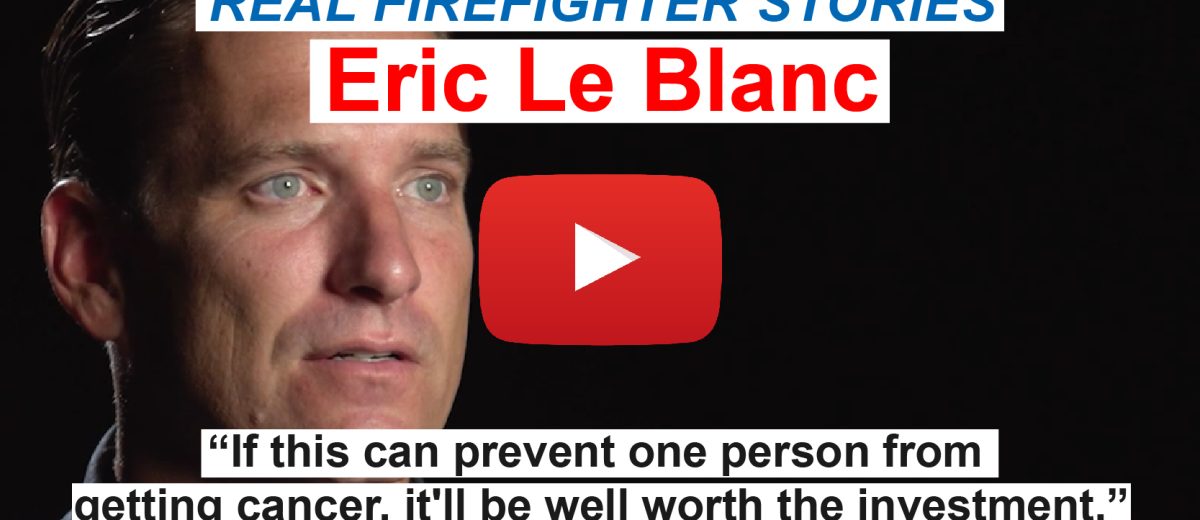How important is clean cab air in your firefighting apparatus? Firefighter Eric LeBlanc shares his story about cancer.
Today, the average cost for cancer treatment runs in the $150,000 range, though some are significantly more. On a national level, the United States spent a total of $173,000,000,000 on cancer treatment in the year 2020.
(source: The U.S. National Library of Medicine)
Let’s hear Eric LeBlanc’s story…
Man, I was in my element. It was physical, it was everything I loved. Working with my hands being around people. Some other memories of all the great men and women I’ve worked with, all the calls that we’ve worked together. Some that we show up to and you just have no idea how you’re going to solve this thing and you just work together to get it done. The world’s problems can be solved at a firefighter’s table for sure, but by far the most memorable moment was finding out I had cancer. Then getting off of that phone call and having to tell my wife.”
“I had a knee injury it was a freeway call and I hyperextended my knee. I went in they did some blood tests. They called me back and said, “Hey your blood levels were kind of off, we’d like to do some further tests. That was the first first time. You know for me personally it’s sometimes a mental game. The more time goes on the more medication it’s just really sinking in like, “Wow! This is real you know, you’re going to have this for life.” I remember the first time that song by Tim McGraw, Live Like You Were Dying, came on the radio after I had been diagnosed. It was like I was hearing the song differently. I haven’t told too many people. Just my close friends and family and everyone’s been very supportive. The two people I’m dreading telling the most is my two daughters. They’re six and four. I just don’t want to break their hearts.”
“How important is clean air? I think we can all agree it’s probably the most important thing for all of us. So, after a structure fire, a brush fire, or vehicle fire – any fire where our turnouts are on and [we’re] around smoke that smell follows us into the cab wherever our turnouts go. And it’s one of those things where, in the morning, say you’re coming in, your relieving your guy, you put your turnouts out there, you open the cab and you smell fire and you go, “Hey man you guys got a burner last night? Tell me about it!” It usually ends up around the dinner table with coffee and they’re telling war stories. So that smell is what this company’s trying to get rid of. That smell has been proven to cause cancer and it’s something over the years it was right there in front of our faces and we were smelling it. Now there’s something out there that can prevent us from smelling those toxins. It’s got to be a good thing right?”
“I just want everyone to know that I believe in this product. And now knowing that there’s something out there that could potentially prevent a firefighter from contracting cancer, how could you not install this? How could you not look further into this, you know? I feel like, if this can prevent one person from getting cancer, it’ll be well worth the investment.
– Eric LeBlanc, Career Firefighter
Cancer is the most dangerous threat to firefighter health and safety today. Cancer caused 66% of the career firefighter line-of-duty deaths from 2002 to 2019.
(source: The International Association of Fire Fighters)
